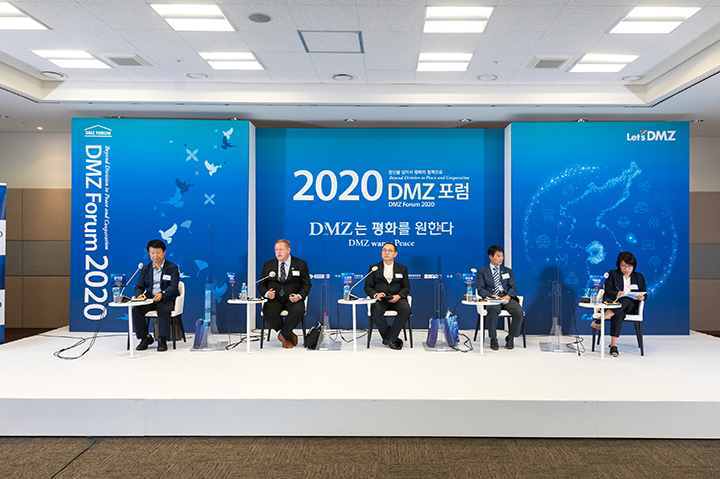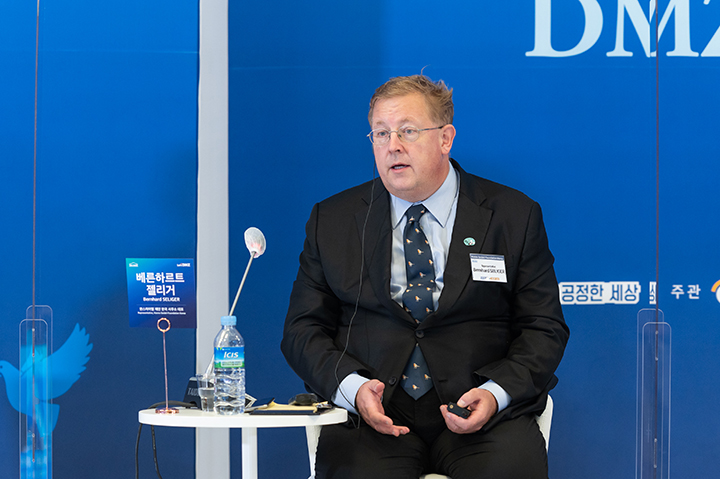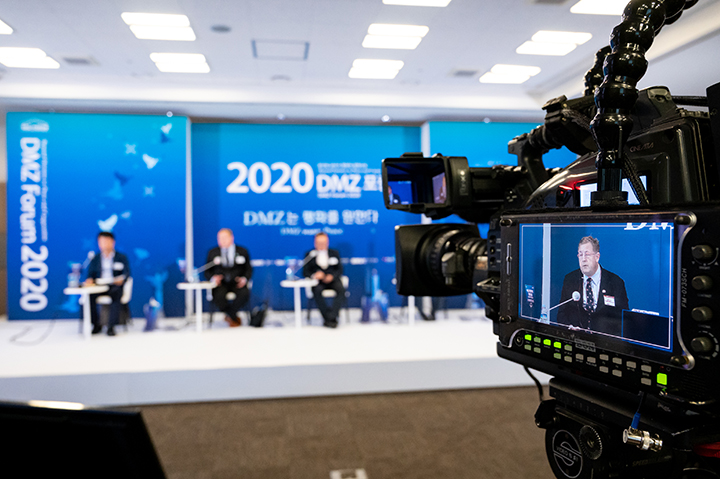Forum
Focusing on Realizable Small-Scale Projects in the DMZ

Dr. Seliger was part of parallel session 1-2 which discussed the DMZ as UNESCO World Heritage. Against this background, in his presentation Dr. Bernhard Seliger talked about the problematic factors of the designation of the DMZ and furthermore gave examples of Germany’s so-called “Neue Ostpolitik” which pursued the strategy of a rather cultural rapprochement. Dr. Seliger stressed that different interests in the area of the DMZ are not always compatible with each other and gave the example of DMZ-tourism endangering DMZ ecological areas. Moreover, he emphasized that the view of the DMZ in North and South Korea seems to be irreconcilable as, while the South Koreans view the border area as a good floor for bilateral communication, for the North Koreans the DMZ rather postulates a place where cooperation can definitely not take place as it is a militarily governed area. Therefore, the border area should be handled with great care, taking the different perceptions and understandings into account which also means that a designation of DMZ as UNSECO World Heritage is impractical without North Korean cooperation.

Though not impossible, such cooperation with the North has proved to be very difficult and without real consistency. In order to discuss possible measures for the creation of mutual understanding, Dr. Seliger hence gave a small excurse to the German-German “Neue Ostpolitik”, especially of the final phase in the second half of the 1980s. Hereby he emphasized the importance of cultural cooperation and soft power in order to create mutual understanding but also pointed out that East Germany only started to work on its cultural heritage shortly before its final collapse. Dr. Seliger finished his presentation by enhancing the importance of small step approaches instead of big steps as well as of a joint understanding on how cultural cooperation and cultural heritage work.

DMZ Forum 2020
Following Dr. Seliger’s presentation, Hyeon-Kyun Noh, Cultural Heritage Team Manager at the Gyeonggi Institute of Cultural Properties, presented on the value of the DMZ as a cultural heritage side and the role of Gyeonggi Province. He agreed with Dr. Seliger that smaller agreements would be more promising for greater progress and furthermore stressed the importance of local communities.
Finally, the two discussants Soo-Jae Lee, Chief Research Fellow of the Korea Environment Institute, and Eun-Jin Park, Director of the National Institute of Ecology commented on the presentations. Both agreed that cultural cooperation, for instance on the level of DMZ geopark, would be a good approach and that on the way to deeper bilateral cooperation, South Korea should focus on realizable small-scale projects instead of big ones. Though dreaming big is not a bad thing, in the case of the inter-Korean relations, a fragile situation that can just backdrop overnight, one should really focus on a stepwise approach of small achievable projects forming a basis that in the long run will broaden cooperation with the North and by that pave the way to the ultimate big goal – in this context namely the designation of the DMZ as UNSECO World Heritage. Concluding, Tae-Hoon Moon, Professor at Chung Ang University and President of the Korea Environment Policy and Administration Society hence emphasized the special importance of the protection of biosphere and geoparks in the DMZ as the top priority.
You can find a video of the whole session in English here and the official website of the Forum here.
